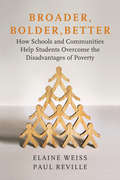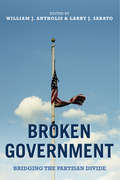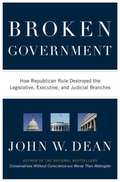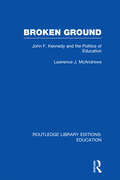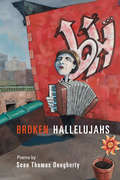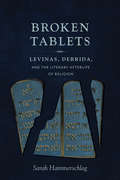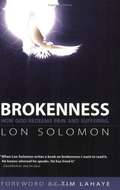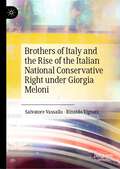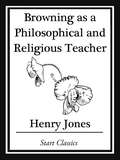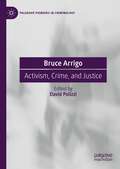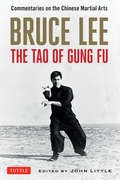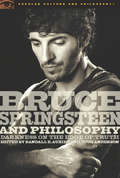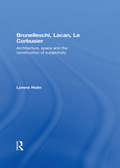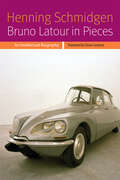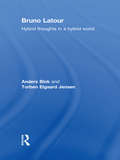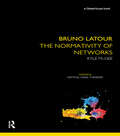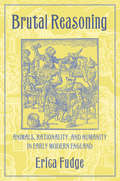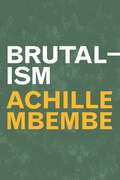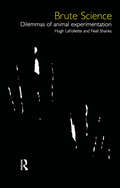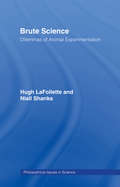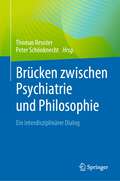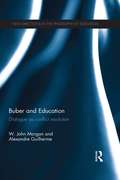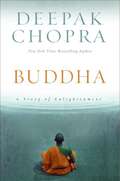- Table View
- List View
Broader, Bolder, Better: How Schools and Communities Help Students Overcome the Disadvantages of Poverty
by Elaine Weiss Paul RevilleIn Broader, Bolder, Better, authors Elaine Weiss, of the Broader, Bolder Approach to Education campaign, and Paul Reville, former Massachusetts secretary of education, make a compelling case for a fundamental change in the way we view education. The authors argue for a large-scale expansion of community-school partnerships in order to provide holistic, integrated student supports (ISS) from cradle to career, including traditional wraparound services like health, mental health, nutrition, and family supports, as well as expanded access to opportunities such as early childhood education, afterschool activities, and summer enrichment programs. The book builds on nearly a decade of research by the Broader, Bolder Approach to Education, a national initiative endorsed by more than sixty policy experts and leaders from across the country, and draws on the work of Harvard&’s Education Redesign Lab. It pulls from case studies of effective ISS efforts in twelve diverse communities to illustrate the variety of strategies that can be adopted locally. A call to action that also provides examples of communities that are successfully leveling the playing field for poor children, this book offers a detailed vision for building—through field work, mobilization, and financing—comprehensive systems to prepare all children for success.
Broken Government: Bridging the Partisan Divide (Miller Center Studies on the Presidency)
by Alan Taylor Larry J. Sabato Gary W. Gallagher Kyle Kondik Kunal Modi William J. Antholis Carolyn Dewar Tom Dohrmann Andrew Erdmann Ryan Harper Bruce J. KatzIn an increasingly polarized political environment, the first year of the new president’s term will be especially challenging. With a fresh mandate, however, the first year also offers opportunities that may never come again. The First Year Project is a fascinating initiative by the Miller Center of the University of Virginia that brings together top scholars on the American presidency and experienced officials to explore the first twelve months of past administrations, and draw practical lessons from that history, as we inaugurate a new president in January 2017.This project is the basis for a new series of digital shorts published as Miller Center Studies on the Presidency. Presented as specially priced collections published exclusively in an ebook format, these timely examinations recognize the experiences of past presidents as an invaluable resource that can edify and instruct the incoming president.Contributors: Alan Taylor, University of Virginia * Gary Gallagher, University of Virginia * Bruce Katz, Brookings Institution * Kyle Kondik, UVA Center for Politics * Carolyn Dewar, Tom Dohrmann, Andrew Erdmann, Ryan Harper, and Junal Modi, McKinsey & Company
Broken Government: How Republican Rule Destroyed the Legislative, Executive and Judicial Branches
by John W. Dean(From the book jacket) IN BROKEN GOVERNMENT JOHN DEAN EXAMINES ONE OF THE MOST CRITICAL QUESTIONS FACING AMERICANS TODAY: How can our democracy function when the key institutions of government-the legislative, executive, and judicial branches-no longer operate as contemplated by the Constitution because of politics? This concluding volume of a trilogy that began with the national bestsellers Worse Than Watergate and Conservatives Without Conscience is a revelatory investigation of the effects of three decades of Republican rule-three decades in which honored political processes established by the rules, traditions, laws, and constitutional mandates of the federal system have been broken or simply ignored. Congress has become a body incapable of meaningful deliberation or presidential oversight; the president has amassed ever greater power, unhindered by any checks and balances; and the independence and impartiality of the federal judiciary have been corrupted by the ascendance of judges and justices with a radical conservative political philosophy. The Republican agenda has proven itself to be an agenda of special interests rather than of the public interest, the scheme of a party whose primary aim is to maintain its power, whatever the cost. Dean carefully traces the development of these fundamental failures of the political system, from Nixon's imperial presidency through Reagan's popular disparagement of government to the doctrines that have reached their fullest expression in the administration of George W. Bush, a presidency that growing numbers of scholars have already begun to assess as one of the worst-if not the worst-in the nation's history.
Broken Ground: John F Kennedy and the Politics of Education (Routledge Library Editions: Education)
by Lawrence J McAndrewsThroughout United States history, and particularly from the 1930s through the 1960s, education was a sensitive political issue which preoccupied Congresses, Presidents and interest groups. By the time of John F Kennedy’s Presidency federal aid to education was all but inevitable but the disproportionate influence of federal aid adversaries on the House Rule Committee would permit the Kennedy Administration no margin of error. There remained in this subject an abundance of complications and contradictions. This volume addresses the central questions of Kennedy versus Congress and Kennedy versus Kennedy, using a wide range of sources to give a comprehensive focus to this area of political education.
Broken Hallelujahs
by Sean Thomas DoughertyFusing street scenes (from Budapest to New York City) with family history (African American and Jewish), Sean Thomas Dougherty uses both traditional and experimental forms to explore issues of identity and family. Deeply rooted in music and performance, Dougherty's poetry resists easy categorization, revealing the complexity of our lives and times. Sean Thomas Dougherty lives in Erie, Pennsylvania, where he teaches in the BFA program for creative writing at Penn State Erie. He is a nationally renowned performance poet and author of nine previous poetry collections. He was a finalist for the 2005 Paterson Poetry Prize and winner of the 2000 Pinyon Press Poetry Prize.
Broken Hallelujahs (American Poets Continuum)
by Sean Thomas DoughertyFusing street scenes (from Budapest to New York City) with family history (African American and Jewish), Sean Thomas Dougherty uses both traditional and experimental forms to explore issues of identity and family. Deeply rooted in music and performance, Dougherty&’s poetry resists easy categorization, revealing the complexity of our lives and times. Sean Thomas Dougherty lives in Erie, Pennsylvania, where he teaches in the BFA program for creative writing at Penn State Erie. He is a nationally renowned performance poet and author of nine previous poetry collections. He was a finalist for the 2005 Paterson Poetry Prize and winner of the 2000 Pinyon Press Poetry Prize.
Broken Tablets: Levinas, Derrida, and the Literary Afterlife of Religion
by Sarah HammerschlagOver a span of thirty years, twentieth-century French philosophers Emmanuel Levinas and Jacques Derrida held a conversation across texts. Sharing a Jewish heritage and a background in phenomenology, both came to situate their work at the margins of philosophy, articulating this placement through religion and literature. Chronicling the interactions between these thinkers, Sarah Hammerschlag argues that the stakes in their respective positions were more than philosophical. They were also political. Levinas's investments were born out in his writings on Judaism and ultimately in an evolving conviction that the young state of Israel held the best possibility for achieving such an ideal. For Derrida, the Jewish question was literary. The stakes of Jewish survival could only be approached through reflections on modern literature's religious legacy, a line of thinking that provided him the means to reconceive democracy. Hammerschlag's reexamination of Derrida and Levinas's textual exchange not only produces a new account of this friendship but also has significant ramifications for debates within Continental philosophy, the study of religion, and political theology.
Brokenness: How God Redeems Pain and Suffering
by Lon SolomonPastor Lon Solomon tells how God shattered him through his severely disabled daughter, and how pain and suffering are part of God's plan to bring us closer to Him.
Brothers of Italy and the Rise of the Italian National Conservative Right under Giorgia Meloni
by Salvatore Vassallo Rinaldo VignatiThis book is an in-depth study of Fratelli d’Italia, the party led by Italian Prime Minister Giorgia Meloni. After providing a concise history of the neo-fascist and post-fascist parties to which Fratelli d’Italia is heir, the book examines its founding, statutory rules and internal organisation. The authors explore Meloni’s communication style and the national conservative ideology she has embraced, Fratelli d’Italia’s international network of alliances and its place in EU politics, and the composition of the electorate that led to the success of her and the party in the 2022 parliamentary elections. Through well-documented, rigorous and impartial analysis, the book offers insights into the path Fratelli d’Italia has taken and the identity it has built in its first ten years – explaining why a political tradition that seemed destined for extinction has come to power and is now attempting to change coalition politics in the EU. In doing so, the authors challenge several entrenched assumptions about populist and radical right-wing parties. The Italian edition of the book was reviewed in national newspapers and other media, garnering praise from a wide range of political perspectives.
Brouhaha: Worlds of the Contemporary (Univocal)
by Raymond N. MacKenzie Lionel RuffelWithin the hypermediated age where knowledge production is decentered and horizontal, the experience of lived time has become a concordance of temporalities. The literary imagination, which was emblematic of modernity and thoroughly connected to the book as a support structure, has now become integrated within a much vaster regime of publication. Thought concerning the world is from now on a thought concerning a plurality of worlds. By way of six guiding threads (exposition, media, controversy, publication, institutionalization, archaeology), this essay describes the transformation of cultural forms and visions of history.
Browning as a Philosophical and Religious Teacher
by Henry JonesRobert Browning (1812-1889) was indubitably one of the great poets of the Victorian era. But this book looks beyond the words. The purpose of this book is to deal with Browning, not simply as a poet, but rather as the exponent of a system of ideas on moral and religious subjects, which may fairly be called philosophy. More than mere aesthetics, his works are reflections of his contemplations of religion and morality.
Bruce Arrigo: Activism, Crime, and Justice (Palgrave Pioneers in Criminology)
by David PolizziThis book examines various aspects of the work of Bruce Arrigo related to therapeutic jurisprudence, criminal justice ethics, and the place of critical theory in criminology and related fields. Arrigo’s work spans over thirty years and during that time has been an important voice in the practical and theoretical application of post-modern and critical theoretical approaches to mental illness, the practice of forensic psychology, and a wide variety of critical reflection concerning incarceration, rehabilitation, and the ethical practice within the criminal justice system. Each individual contributor offers their own perspective on his work and its specific influence on the topic under discussion. This book speaks to academics focused on the application of critical criminological theory within a variety of disciplinary contexts. These include forensic psychology, psychological jurisprudence, criminal justice ethics, and philosophically based critiques of the law and mental health and criminal justice activism.
Bruce Lee The Tao of Gung Fu: A Study in the Way of Chinese Martial Art
by John Little Bruce LeeThis is a book that Bruce Lee began writing in 1964, but never completed. Lee's writing reveals his thoughtful analysis of the tapestry of Chinese martial arts, offering glimpses into the varied styles and his commentary on these arts. Lee's intense curiosity led him to accumulate this knowledge and expose the limitations of strict adherence to tradition, which inspired him to develop his cosmopolitan "way of no way."The Tao of Gung Fu includes insights into various Chinese martial arts and training methodologies, sketches of martial arts techniques, Lee's personal scrapbook of his famous thesis, "The Tao of Gung Fu." Witness Lee's personal cultivation of excellence in martial arts. His application of philosophy to physical movements epitomizes the unification of mind and body-a genuine way of living for the martial artist.Chapters include:What is Gung Fu?-An Introduction to Chinese Gung Fu, On Yin and Yang, and Bridging the Gap of Yin and YangSome Techniques of Gung Fu-The Fundamentals of Gung Fu, The Basic Striking Points of Gung Fu, Introducing the Wing Chun Straight Punch, and The Practice of FormsTaoism in the Chinese Art of Gung Fu-On Wu-Hsin (No-Mindedness), On Wu Wei (Nondoing), and Centered ThoughtsIdeas and Opinions-Traditions and Histories of Chinese Gung Fu, The Question of Psychic Center, and Bruce's view on Gung FuAppendices-Bruce Lee's gung fu background at the time he wrote this book, Gung Fu terminology, and Letters and gung fu scrapbook This Bruce Lee Book is part of Tuttle Publishing's Bruce Lee Library which also features:Bruce Lee's Striking ThoughtsBruce Lee: The Celebrated Life of the Golden DragonBruce Lee Artist of LifeBruce Lee: Letters of the DragonBruce Lee: The Art of Expressing the Human BodyBruce Lee Jeet Kune Do
Bruce Springsteen and Philosophy
by Randall E. Auxier Doug AndersonKnown as the working man's poet, the Boardwalk prophet, or simply, the Boss. If "love is a banquet at which we feed," Bruce Springsteen has provided much food for thought. In this collection of metaphysical probes, a gang of E-street philosophers will undress Bruce's deeper mysteries like irresistible Jersey girls. Can Springsteen settle the nature-nurture debate through his song "Born to Run"? What do the famous philosopher Ricuoer and Springsteen have in common in their depiction of time? These die-hard Springsteen fans, who just happen to be philosophers, compile an entertaining handbook to the field of Springsteen studies, covering topics like Springsteen's connection to Marx and the proletariat, Springsteen's concept of the soul, and his status as a poet.
Brunelleschi, Lacan, Le Corbusier: Architecture, Space and the Construction of Subjectivity
by Lorens HolmThis well-argued, analytic text provides a greater understanding of spatial issues in the field of architecture. Re-interpreting the fifteenth century demonstration of perspective, Lorens Holm puts it in relation to today’s theories of subjectivity and elaborates for the first time the theoretical link between architecture and psychoanalysis.Divided into three sections, Brunelleschi, Lacan, Le Corbusier argues that perspective remains the primary and most satisfying way of representing form, because it is the paradigmatic form of spatial consciousness. Well-illustrated with over 100 images, this compelling book is a valuable study of this key aspect of architectural study and practice, making it an essential read for architects in their first year or their fiftieth.
Bruno Latour in Pieces: An Intellectual Biography (Forms of Living)
by Henning SchmidgenBruno Latour stirs things up. Latour began as a lover of science and technology, co-founder of actor-network theory, and philosopher of a modernity that had “never been modern.” In the meantime he is regarded not just as one of the most intelligent—and also popular—exponents of science studies but also as a major innovator of the social sciences, an exemplary wanderer who walks the line between the sciences and the humanities.This book provides the first comprehensive overview of the Latourian oeuvre, from his early anthropological studies in Abidjan (Ivory Coast), to influential books like Laboratory Life and Science in Action, and his most recent reflections on an empirical metaphysics of “modes of existence.” In the course of this enquiry it becomes clear that the basic problem to which Latour’s work responds is that of social tradition, the transmission of experience and knowledge. What this empirical philosopher constantly grapples with is the complex relationship of knowledge, time, and culture.
Bruno Latour: Hybrid Thoughts in a Hybrid World (Key Sociologists)
by Torben Elgaard Jensen Anders BlokFrench sociologist and philosopher, Bruno Latour, is one of the most significant and creative thinkers of the last decades. Bruno Latour: Hybrid Thoughts in a Hybrid World is the first comprehensive and accessible English-language introduction to this multi-faceted work. The book focuses on core Latourian themes: • contribution to science studies (STS – Science, Technology & Society) • philosophical approach to the rise and fall of modernity • innovative thoughts on politics, nature, and ecology • contribution to the branch of sociology known as ANT – Actor-Network Theory. With ANT, Latour has pioneered an approach to socio-cultural analysis built on the notion that social life arises in complex networks of actants – people, things, ideas, norms, technologies, and so on – influencing each other in dynamic ways. This book explores how Latour helps us make sense of the changing interrelations of science, technology, society, nature, and politics beyond modernity.
Bruno Latour: The Normativity of Networks (Nomikoi: Critical Legal Thinkers)
by Kyle McGeeThe first extended study of Bruno Latour’s legal theory, this book presents a critical reconstruction of the whole of Latour’s oeuvre to date, from Laboratory Life to An Inquiry into the Modes of Existence. Based on the powerful insights into normative effects that actor-network theory makes possible, the book advances a new theory of legal normativity and the force of law, rethinking Latour’s work on technology, the image, and referential scientific inscriptions, among others, and placing them within the ambit of legality. The book also captures and deepens the contrast between the modern legal institution and the value of law as a mode of existence, and provides a fulsome theoretical account of legal veridiction. Throughout, Latour’s thought is put into dialogue with important progenitors and adversaries as well as historical and contemporary strands of legal and political philosophy. But the thread of legality is not confined to Latour's reflections on the making of law; rather, it cuts through the whole of his highly diverse body of work. The empire of mononaturalism augured by modern philosophies of science is thoroughly juridical; as such, the actor-network theory that promises to undo that empire by freeing the value of the sciences from its epistemological clutches is unthinkable without the device of the trial and the descriptive semiotics of normativity that sustain ANT. The democratization of the sciences and the vibrancy of ecologized politics that become possible once the bifurcation of nature into essential primary and disposable secondary qualities is disabled, and once the ‘modern Constitution’ is called into doubt, also have important legal dimensions that have gone largely unexamined. Bruno Latour: The Normativity of Networks remedies this and other omissions, evaluating Latour’s thought about law while carrying it in striking new directions. This book introduces legal scholars and students to the thought of the philosopher and sociologist Bruno Latour, whilst also presenting a critical analysis of his work in and around law. This interdisciplinary study will be of interest to those researching in Law, Philosophy, and Sociology.
Brutal Reasoning: Animals, Rationality, and Humanity in Early Modern England
by Erica FudgeEarly modern English thinkers were fascinated by the subject of animal rationality, even before the appearance of Descartes's Discourse on the Method (1637) and its famous declaration of the automatism of animals. But as Erica Fudge relates in Brutal Reasoning, the discussions were not as straightforward—or as reflexively anthropocentric—as has been assumed. Surveying a wide range of texts-religious, philosophical, literary, even comic-Fudge explains the crucial role that reason played in conceptualizations of the human and the animal, as well as the distinctions between the two. Brutal Reasoning looks at the ways in which humans were conceptualized, at what being "human" meant, and at how humans could lose their humanity. It also takes up the questions of what made an animal an animal, why animals were studied in the early modern period, and at how people understood, and misunderstood, what they saw when they did look.From the influence of classical thinking on the human-animal divide and debates surrounding the rationality of women, children, and Native Americans to the frequent references in popular and pedagogical texts to Morocco the Intelligent Horse, Fudge gives a new and vital context to the human perception of animals in this period. At the same time, she challenges overly simplistic notions about early modern attitudes to animals and about the impact of those attitudes on modern culture.
Brutalism (Theory in Forms)
by Achille MbembeIn Brutalism, eminent social and critical theorist Achille Mbembe invokes the architectural aesthetic of brutalism to describe our moment, caught up in the pathos of demolition and production on a planetary scale. Just as brutalist architecture creates an affect of overwhelming weight and destruction, Mbembe contends that contemporary capitalism crushes and dominates all spheres of existence. In our digital, technologically focused era, capitalism has produced a becoming-artificial of humanity and the becoming-human of machines. This blurring of the natural and artificial presents a planetary existential threat in which contemporary society’s goal is to precipitate the mutation of the human species into a condition that is at once plastic and synthetic. Mbembe argues that Afro-diasporic thought presents the only solution for breaking the totalizing logic of contemporary capitalism: repairing that which is broken, developing a new planetary consciousness, and reforming a community of humans in solidarity with all living things.
Brute Science: Dilemmas Of Animal Experimentation (Philosophical Issues In Science Ser.)
by Hugh LaFollette Niall ShanksFirst published in 1997. Routledge is an imprint of Taylor & Francis, an informa company.
Brute Science: Dilemmas of Animal Experimentation (Philosophical Issues In Science Ser.)
by Hugh LaFollette Niall ShanksBrute Science investigates whether biomedical research using animals is, in fact, scientifically justified. Hugh LaFollette and Niall Shanks examine the issues in scientific terms using the models that scientists themselves use. They argue that we need to reassess our use of animals and, indeed, rethink the standard positions in the debate.
Brücken zwischen Psychiatrie und Philosophie: Ein interdisziplinärer Dialog
by Thomas Reuster Peter SchönknechtPsychiatrie und Psychotherapie benötigen mehr denn je philosophisches Handwerk zur vertieften Reflexion ihrer Methoden und zum aktuellen Verständnis ihrer grundlegenden Themen: Mensch, Geist, Gehirn, Leiblichkeit, Sozialität, psychische Krankheit, innere Freiheit, Verantwortung, Selbstbestimmung u.a.Dazu versammelt das Buch Beiträge namhafter Autoren aus beiden Fachgebieten. Konstante Beachtung findet die Idee der Brücken zwischen diesen Disziplinen. Mehrheitlich kommen deshalb Autoren zu Wort, die in ihrer Person psychiatrische und philosophische Kompetenz vereinen.
Buber and Education: Dialogue as conflict resolution (New Directions In The Philosophy Of Education Ser.)
by Alexandre Guilherme W. John MorganMartin Buber (1878-1965) is considered one of the 20th century�s greatest thinkers and his contributions to philosophy, theology and education are testimony to this. His thought is founded on the idea that people are capable of two kinds of relations, namely I-Thou and I-It, emphasising the centrality of dialogue in all spheres of human life. For t
Buddha
by Deepak ChopraDeepak Chopra brings the Buddha back to life in this gripping New York Times bestselling novel about the young prince who abandoned his inheritance to discover his true calling. This iconic journey changed the world forever, and the truths revealed continue to influence every corner of the globe today. A young man in line for the throne is trapped in his father's kingdom and yearns for the outside world. Betrayed y those closest to him, Siddhartha abandons his palace and princely title. Face-to-face with his demons, he becomes a wandering monk and embarks on a spiritual fast that carries him to the brink of death. Ultimately recognizing his inability to conquer his body and mind by sheer will, Siddhartha transcends his physical pain and achieves enlightenment. Although we recognize Buddha today as an icon of peace and serenity, his life story was a tumultuous and spellbinding affair filled with love and sex, murder and loss, struggle and surrender. From the rocky terrain of the material world to the summit of the spiritual one, Buddha captivates and inspires--ultimately leading us closer to understanding the true nature of life and ourselves.
